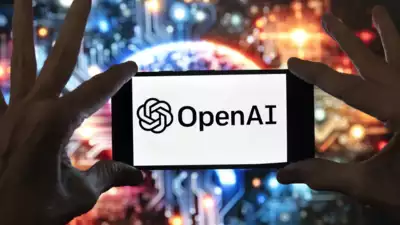
OpenAI Unveils ‘Deep Research’ Tool as China’s DeepSeek Heats Up AI Race
OpenAI Unveils ‘Deep Research’ Tool as China’s DeepSeek Heats Up AI Race
OpenAI has launched a groundbreaking feature called “Deep Research” for ChatGPT, enhancing its automated research capabilities. Meanwhile, China’s DeepSeek chatbot is emerging as a formidable competitor, intensifying the global race for AI dominance. Amid these developments, OpenAI CEO Sam Altman and SoftBank’s Masayoshi Son met with Japanese Prime Minister Shigeru Ishiba to discuss AI infrastructure investments under the Stargate initiative.
OpenAI’s ‘Deep Research’: A Game-Changer for AI
On Monday, OpenAI introduced its latest ChatGPT feature, “Deep Research,” designed to revolutionize how users conduct online research. The tool promises to deliver comprehensive, analyst-level reports in a fraction of the time it would take a human. According to OpenAI, “Deep Research is our next-generation agent that works independently. You provide a prompt, and ChatGPT will find, analyze, and synthesize hundreds of online sources to create a detailed report.”
During a live demonstration, OpenAI researchers showcased the tool’s capabilities by processing web search data to recommend ski equipment for a Japanese snow holiday. This feature highlights OpenAI’s commitment to making AI more practical and efficient for everyday tasks.
China’s DeepSeek: A Rising Competitor
As OpenAI pushes the boundaries of AI innovation, China’s DeepSeek chatbot is making waves in the industry. Known for its cost-effectiveness and efficiency, DeepSeek has become a serious contender in the AI race, prompting American developers to accelerate their efforts. The emergence of DeepSeek underscores the growing competition between the US and China in the field of artificial intelligence.
High-Level Discussions in Tokyo
Coinciding with the launch of “Deep Research,” OpenAI CEO Sam Altman and SoftBank’s Masayoshi Son met with Japanese Prime Minister Shigeru Ishiba in Tokyo. The discussions focused on AI infrastructure investments as part of the Stargate initiative, a $500 billion project announced by US President Donald Trump. The initiative aims to develop advanced AI infrastructure across the United States, with SoftBank and cloud computing leader Oracle playing key roles.
Masayoshi Son’s presence at Trump’s inauguration earlier this year signaled SoftBank’s commitment to leading the US AI infrastructure project. Meanwhile, Prime Minister Ishiba is scheduled to travel to Washington later this week for his first face-to-face meeting with President Trump, further solidifying the collaboration between the two nations.
The Bigger Picture: AI and Global Competition
The unveiling of OpenAI’s “Deep Research” tool and the rise of China’s DeepSeek highlight the intensifying competition in the AI sector. As countries and companies vie for dominance, the stakes have never been higher. The Stargate initiative represents a significant step toward securing the US’s position as a global leader in AI, but challenges remain, particularly in the face of China’s rapid advancements.
What’s Next for OpenAI and the AI Industry?
As OpenAI continues to innovate, the company faces the dual challenge of maintaining its competitive edge while navigating geopolitical tensions. Key areas to watch include:
- Innovation: How will OpenAI’s “Deep Research” tool evolve, and what new features will it introduce?
- Global Collaboration: Will partnerships like the Stargate initiative help the US maintain its leadership in AI?
- Market Competition: Can OpenAI stay ahead of competitors like DeepSeek, and how will this rivalry shape the future of AI?
For now, OpenAI’s latest advancements and the growing influence of China’s DeepSeek underscore the dynamic and rapidly evolving nature of the AI industry. As the race for AI supremacy heats up, the world will be watching closely to see which players emerge as the ultimate leaders.



